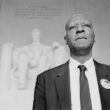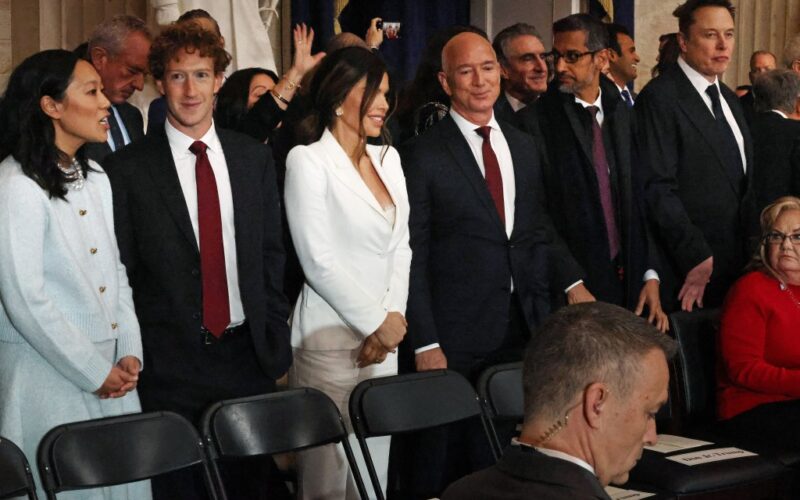For many New Yorkers, we still get up each morning relitigating the 2024 election. But 2024 marked another critical breaking point. Scientists across the globe say that 2024, was the hottest year in recorded history and the upcoming year could be worse. Climate change is devastating us.
In North Carolina people were crippled by the largest hurricanes in history. And in California the continued horrific fires, the worst in their state’s history, have displaced thousands, leaving the state in despair. While the recent fires and hurricanes didn’t directly affect New Yorkers, we watch it on TV and well remember the horror of Hurricane Sandy and recall the recent Canadian fires that made our air unsafe.
This is only the beginning, the threat of fires, hurricanes, escalating temperatures and severe flooding will escalate, and if left unchecked, devastate our city, state, and the world.
We know climate change is real and is an existential threat. We know it because New Yorkers and their families experience it every day. In response, in the 2024 election, 22 states with strong public support, voted to fight climate change, approving billions of dollars in new spending. In New York actions to fight climate change at the state and local level have escalated and they too have strong support. Polls show that Americans know climate change is a very real threat. And it is not just the U.S. that understands it.
To fight the threat, countries across the globe joined the U.S. and signed on to the Paris Agreement, where more than 100 countries committed to a range of actions to reduce the risk of climate change by cutting greenhouse gases and fossil fuels. Nations signed on to the treaty out of a strong belief that there were no other options.
Among them are many countries that were the first home to many New Yorkers’ families, including Australia, Brazil, Canada, China, Denmark, France, Greece, Israel, Ireland, Italy, Japan, Mexico, Norway, Korea, Spain, Sweden, and the United Kingdom. But it’s not just voters and governments that believe this is a real danger.
In 2017, a range of Fortune 500 companies signed a full page ad in the New York Times, Wall Street Journal, and other publications strongly urging the newly elected President Trump, who threatened to withdraw American participation from the agreement, not to pull the U.S. out. The business-funded 2017 ad showed strong business support for the Paris Agreement.
Here is what it says: “Continued U.S. participation in the agreement benefits both businesses and the U.S. economy in many ways” and the ad goes on to stress that the Paris Agreement delivers tangible results in three important ways. First, it “Strengthens Competitiveness, Second it Creates Jobs, Markets and Growth, and third it Reduces Business Risks.”
For all those powerful reasons, business strongly disagreed with pulling the U.S. out. A clear and powerful public statement. And yet the president didn’t listen and pulled the U.S. out.
Among the companies signing were Apple, Facebook, Google, HP, Intel, Microsoft, and Salesforce. Those companies and others spoke out in support of efforts to save the planet, linking climate change to severe consequences for the economy and jobs. When they did they were praised by their shareholders, employees and the general public who greatly appreciated their courageous actions. It was also a way of attracting top talent who only wanted to work for a company committed to addressing climate change.
Now back to the presidential election. While right after the 2020 election, President Biden, with strong voter and business support, had the U.S. rejoin the Paris Agreement, and was praised for doing so, it is front and center again.
At the recent presidential inauguration attended and financially supported by CEOs including Elon Musk, Mark Zuckerberg, Jeff Bezos, Tim Cook and Sundar Pichai, from companies like Twitter, Facebook, Amazon, Apple and Google and the returned President Trump turned the clock back, signing an executive order pulling the U.S. out of the Paris Agreement.
But Trump went further. He signed another executive order discarding environmental regulations controlling fossil fuels and greenhouse gases. While fossil fuel companies were not there in large numbers, they are the beneficiaries. This is fully consistent with the new president’s public statements stating that climate change is a “lie” and a ” hoax” He also pledged to “drill baby drill” and dramatically increase fossil fuel drilling across U.S. public lands, counter to scientific evidence that such action will dramatically increase the speed and danger of climate change.
Business leaders’ strong support for the new president is in conflict with their prior support and the American public’s support for a range of actions that address climate change. But the degree the president’s policies are counter to the interest of business leaders doesn’t begin and end there.
In addition to pulling out of the Paris Agreement, another executive order pulls the U.S. out of the World Health Organization (WHO), the major UN agency addressing global health emergencies like pandemics. The WHO, which the U.S. helped launch, is critical and is strongly supported by the wealth of other billionaires like Bill Gates, Mike Bloomberg and Warren Buffett who all believe the WHO is vital.
The WHO has played and will play a major role in addressing health crises like COVID that know no geographic barriers. It is supported by nations around the world. The emergency of COVID and high New York deaths came from people traveling from other countries, and this will continue. But the U.S. will now no longer even be a member of WHO putting cities like New York at risk.
In addition, the president is imposing steep increases in tariffs on goods from countries like Canada and Mexico. In response, industries like automotive and retail have clearly opposed steep tariffs believing it will drive up the cost of their products, hurting their companies their workers, their families and customers, And it doesn’t end with tariffs, health care and the environment,
After the tragedy in Charlottesville when radical American Nazis and antisemites violently attacked Jews and Black Americans, frightening many Americans, business leaders felt strongly they needed to speak out, because of their personal and company interests, augmented by pressure from their employees, shareholders and clients. So, they publicly withdrew from the president’s corporate advisory council.
And after the horrific murder of George Floyd, they publicly spoke out against racial injustice, and company after company announced policies to support diversity, On inauguration day, ironically Martin Luther King Jr. Day, the incoming president expressed his opposition to any federal actions involving diversity, and quickly signed another executive order prohibiting any government agency from engaging in any activities that support diversity to benefit people of color or gender.
Many of the companies that now aggressively support the president, despite clear differences on many issues, are in the technology and social media sectors. Some, led by Musk, but joined by Zuckerberg, Bezos and others, who in the past clearly differed with the president, now believe their deep pocket financial support will translate into less constraint on tools like artificial intelligence and can promote unrestrained growth of social media platforms.
The message is clear, self-interest negates divergence on issues like the environment, tariffs, health care, and diversity.
Of course there is a powerful reason why this assumption will not hold water for a year, let alone four. The views of the American public. They are consumers of the products that businesses make and sell. If the public suffers as a result of policies that destroy the environment, maximize health risks, and drive up the cost of goods and services, their anger will be directed at those in support of those policies, and their anger will be enhanced if the supporters are the financial beneficiaries.
And there’s one more hidden factor. More and more top talent will refuse to work for a company whose actions violate their values.
This has most definitely been a bumpy start to the year, but if the effect of the risks magnify and the results are overwhelmingly negative, there can be a turn in the right direction, and businesses will turn as well.
Litow is a SUNY Trustee and former president of the IBM Foundation and former NYC deputy schools chancellor.








